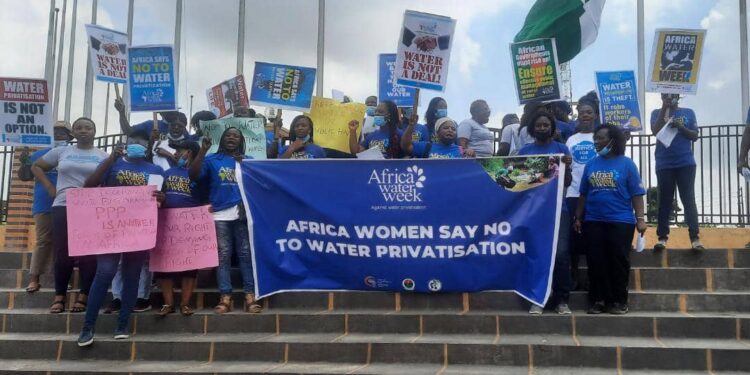The Corporate Accountability and Public Participation Africa (CAPPA), a non-governmental organization that advocates for environmental justice, has demanded that the Lagos State Governor, Babajide Sanwo-Olu halts the partnership between the Lagos Water Corporation (LWC) and the United States Agency for International Development (USAID).
The partnership, according to CAPPA, is an attempt to exploit Lagosaians through water privatization.
In a press statement signed by CAPPA’s Director of Programmes in Lagos, Philip Jakpor, it was disclosed that the memorandum of understanding (MOU) signed by the LWC and USAID in December 2021 has been kept out of the public domain.
After obtaining the copy of the MOU through the Freedom of Information Act request filed in the United States, CAPPA said it has been able to shed light on the insidious plans within it.
Jakpor said “the MOU contained a dangerous plan to fundamentally restructure the Lagos water sector and push forward privatisation under the guise of private sector participation.
“One of the obligations of the Lagos State Government in the MOU is to “explore options for private sector participation for the development and management of capital improvements, such as the development and management of Igbonla waterworks.”
CAPPA’s Executive Director, Akinbode Oluwafemi, criticized the Lagos State Government for ignoring the people of Lagos and making critical decisions that would affect them but only benefit multinationals and other states that have long exploited Africa.
“How many times will the people of Lagos be simply ignored and left in the dark in critical decisions made in their name under the guise of ‘’collective interest’’, but ultimately to the benefit of multinationals and states which have long exploited Africa?” he asked.
Oluwafemi and other representatives of the Our Water Our Right group called on Governor Babajide Sanwo-Olu to terminate the pro-privatisation MOU with USAID and instead fulfil his government’s obligation to Lagosians who yearn for democratic ownership and public control of the future of their water.

